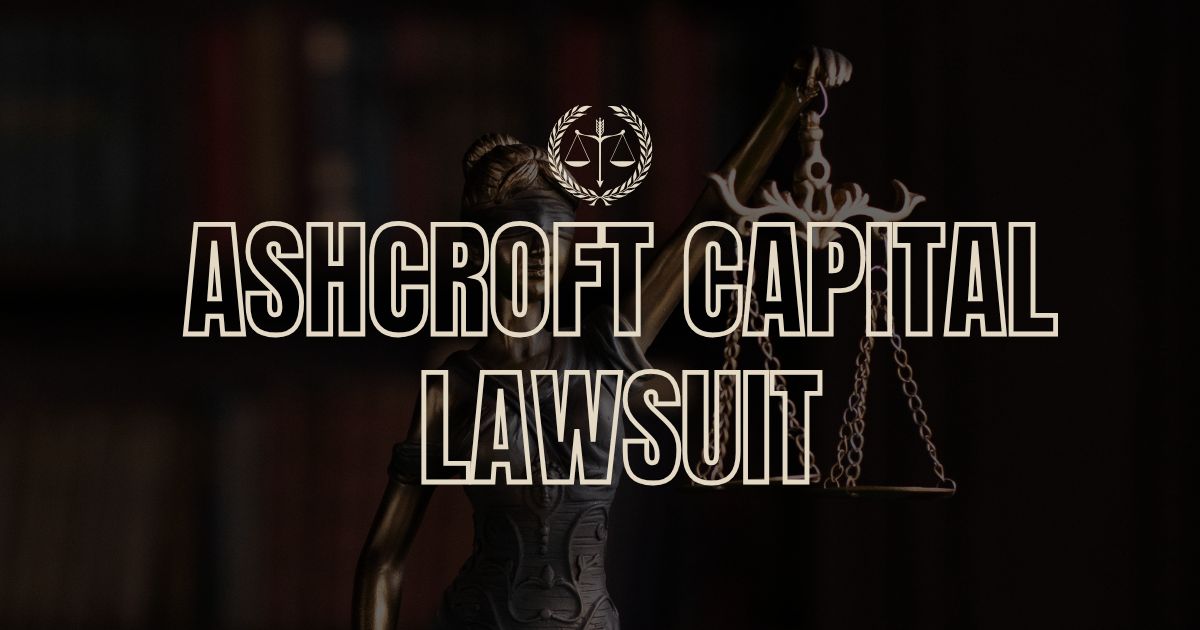Ashcroft Capital is a real estate investment firm known for acquiring and managing multifamily properties across the United States. Founded by Joe Fairless, the company has built a reputation for syndicating apartment investments and managing them with the goal of creating consistent returns for investors.
What Sparked the Ashcroft Capital Lawsuit?
The lawsuit involving Ashcroft Capital stems from claims made by a group of investors who allege the firm failed in its fiduciary duties. These investors argue that Ashcroft Capital misrepresented certain financial aspects of its deals, withheld material information, or did not act in their best interest. While details are still emerging, the lawsuit appears to center around transparency and financial mismanagement.
Alleged Issues in Investor Communications
One of the primary allegations is that Ashcroft Capital may have misled investors in updates and financial statements. Claims suggest that projections did not align with actual performance, and some investors report a lack of timely information regarding project risks or delays in distribution payments. Transparency, or lack thereof, has become a focal point of the case.
Concerns Over Property Valuations
Another key concern is related to the valuation of the multifamily properties Ashcroft Capital invested in. It’s alleged that certain assets were overvalued at acquisition or during refinancing, which may have created misleading expectations about returns. If true, this could mean investors were unknowingly participating in riskier deals than they initially understood.
The Role of Syndication in the Lawsuit
Ashcroft Capital operates by pooling funds from individual investors through real estate syndication. This model is built on trust and fiduciary responsibility. When syndicators fail to deliver on their promises or mismanage investor funds, legal issues like this lawsuit can arise. The court will likely examine whether Ashcroft fulfilled its duties as a syndicator.
Responses from Ashcroft Capital
As of now, Ashcroft Capital has not publicly admitted any wrongdoing. In statements made to the public and investors, they have defended their practices, maintaining that all investments were handled professionally and within legal parameters. They argue that market volatility and unforeseen economic shifts—such as interest rate hikes—are contributing factors to underperformance in some properties.
Impact on Current Investors
For those currently invested with Ashcroft Capital, the lawsuit raises legitimate concerns. While no court judgment has yet been issued, the situation may affect future returns, ongoing projects, and the firm’s ability to raise funds. Some investors are reevaluating their involvement or seeking legal counsel.
Implications for Real Estate Syndicators
The Ashcroft Capital lawsuit sends a ripple through the broader real estate investment community. Syndicators everywhere are being reminded of the importance of full transparency, accurate financial reporting, and diligent investor relations. The outcome of this case could set a precedent for how syndicators must operate in the future.
Legal Protections for Investors
Investors in real estate syndications are typically protected by SEC regulations, especially under Rule 506 of Regulation D. If Ashcroft is found to have breached these regulations, the firm could face significant penalties. The lawsuit could encourage more investors to scrutinize offering memorandums and seek legal reviews before investing in similar deals.
What This Means for Passive Investors
Passive investors—those who provide capital but don’t participate in day-to-day management—rely heavily on the syndicator’s honesty and competence. This lawsuit highlights the need for due diligence. Before investing, passive investors should research the sponsor’s history, request performance data, and consult with financial or legal professionals.
Due Diligence Lessons from the Case
The Ashcroft Capital case reinforces the value of due diligence. Investors are urged to look beyond flashy marketing materials and deep dive into sponsor backgrounds, third-party reviews, and project fundamentals. It also helps to ask tough questions about risk mitigation, exit strategies, and financial assumptions.
Will This Affect Future Syndications?
Yes, there’s potential for lasting impact. If the lawsuit results in a major penalty or settlement, Ashcroft’s brand may suffer, affecting its ability to raise capital in the future. More broadly, it could lead to tighter scrutiny on syndications, either from regulators or investors demanding higher standards.
The Role of Market Conditions
It’s important to note that some of the challenges Ashcroft faces could also stem from market conditions. Rising interest rates, inflation, and a softening multifamily market have impacted many real estate portfolios. However, these factors don’t exempt firms from maintaining ethical and legal standards in investor communication.
Investors’ Legal Recourse
Those affected may have legal options. If the court finds that Ashcroft Capital violated any laws or investor agreements, investors may be entitled to restitution. Legal firms are now reviewing syndication contracts to determine the best course of action for their clients.
Public Perception and Reputation Risk
Reputation is everything in the investment world. Even if Ashcroft is ultimately cleared of wrongdoing, the mere existence of a lawsuit can erode trust. For potential investors, perception often outweighs reality, and rebuilding credibility may take years.
Final Thoughts
While it’s too early to declare guilt or innocence, the Ashcroft Capital lawsuit is a wake-up call for everyone involved in private real estate investing. It emphasizes the critical role of trust, communication, and transparency. Investors should always be cautious and informed, no matter how reputable a firm appears.
Conclusion
The Ashcroft Capital lawsuit is unfolding as a complex mix of legal, financial, and reputational challenges. Whether the firm acted improperly remains to be proven in court, but the controversy sheds light on the importance of trust and accountability in real estate syndications. As with any investment, it’s vital to ask questions, do your homework, and never rely solely on projected returns.
FAQs
Is Ashcroft Capital still operating during the lawsuit?
Yes, the company is still functioning and managing properties while the legal process unfolds.
Are investor returns being paused or delayed?
Some reports suggest delays in distributions for certain properties, but it varies case by case.
Can new investors still work with Ashcroft Capital?
Technically yes, but many are choosing to wait until the lawsuit is resolved before engaging.
What should current investors do now?
They should consult with a financial advisor or attorney to understand their rights and next steps.
Could this lawsuit lead to changes in real estate syndication rules?
Potentially, especially if widespread misconduct is uncovered or if regulatory bodies decide to step in.















